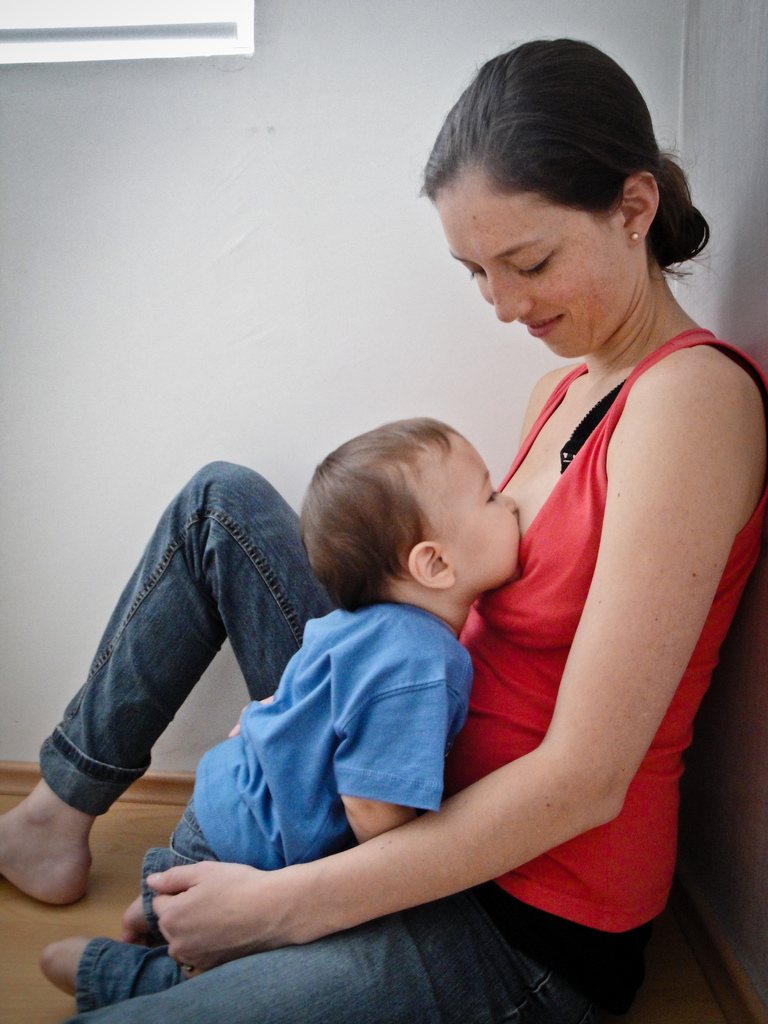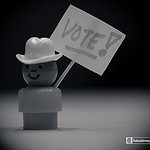It’s been a long time since Woodstock and the beat generation, but the idea of going back to something, be it nature, tribal wisdom, or a pure hipster movement, has remained popular. And if we consider the huge impact of the hippy generation in transforming American popular culture, it is clear that the power of trendy social movements is not to be underestimated, particularly when it comes to the highly popular and almost inevitable questions: having a baby and breastfeeding.
It may not be the hottest topic of your early twenties, but somewhere in the corners of the colorful patchwork of deadline rushes, you might look for your true parenting style. Celebrities can have quite an effect on our choices here. Women like Gwen Stefani and Maggie Gyllenhaal have been seen breastfeeding in public. In fact, actress Mayim Bialik, Sheldon’s girlfriend Amy in the popular Tv show “The Big Bang theory” has been an advocate of breastfeeding, guaranteeing many new fans and media attention to the topic. But E&M is sure that even these celebrities had their doubts before stepping into something that would affect their lives forever.

Therefore, and if you are a woman, before you jump into starting a family, please consider a few things. Decide whether you will become the uptight, bookish mum, or the laissez faire parent who just ‘leaves it to nature’. Think about whether happiness is guaranteed by your new gender role as a mum, or if you still want to be perceived as a dashing and sensual woman, rather associated with short skirts than piles of nappies and dark eye sockets. And then decide if you or your partner will breastfeed. Deciding whether to do it or not at all, in public or just privately, in front of a partner or always in the security of a private room will all have a profound impact of your future self, social, emotional, and of course, sex life.
And if you are a man, you will have to work out your own attitude: will you be supportive and closely involved, or will you treat the subject as a matter of female privacy? Will you still perceive the woman as a target of desire while breastfeeding, especially if the kid is already a toddler?
THE ROLE OF BREASTS
We live in an intensely sexualised culture, meaning that people have become more and more liberal in bed. For instance, anything concerning “oral” has become increasingly popular, and breasts are also part of this sexual liberation. While in 1953, 87% of UK women permitted oral contact with breasts during sex, and only 50% of them actually said they enjoyed it, recent surveys show a rather different picture, with an overall increase of having boobs and a mouth in the same pleasurable equation. But what happens when the woman becomes a mother?
Will you still perceive the woman as a target of desire while breastfeeding, especially if the kid is already a toddler?
A young Dutch mother, age 28, who prefers to remain anonymous, confessed to E&M that breastfeeding increased confidence in her body’s abilities, which has huge benefits for sex. “I love my bigger boobs!”, she says. And she is not alone. Margarita, a 35-year-old US woman who is currently living in Munich, Germany, agrees: “I actually think in the moments I am breastfeeding that I am more attractive and feel more attracted to my partner, and I don’t think that breastfeeding has anything to do with us being a little less passionate.”
Even though it might be tempting to accept as a holy truth the idea that breastfeeding increases libido, one needs to be aware that this currently trendy practice might not be enjoyable to all. Juli is a 29 year old from Hungary and apparently a victim of breastfeeding. She claims that it has totally de-sexualised her body, affecting her self-image and even her adventures in bed. And this is where the role of the partner comes to the table.

ARE THE DADS WILLING TO SHARE THE BOOBS?
In this light, boyfriends, dads, or partners, clearly play as crucial role as the babies themselves. Indeed, the latest UNICEF educational policies often stress the importance of educating partners to accept and support their breastfeeding wives or girlfriends, as they probably play the biggest role in the woman’s decision about when to start weaning. It seems that their reactions are complex and unclear. The 32-year-old Mark, a young British dad, confessed that he was touched to see his newborn son being breastfed, but that he would find it “weird” if he had to see him doing this “coming home from kindergarten”. It seems that it is seen as natural only while babies are still small, but it is a different matter as soon as the child starts growing.
BREASTFEEDING: A RURAL OR URBAN INVENTION?
Whereas in the 1940s there was a tendency for policy-makers to discourage breastfeeding, and though Europe has remained a region with comparatively low breastfeeding rates ever since, support has tended to grow in the last half century, acknowledging the numerous advantages of breast milk over artificial formulas. Both the WHO (World Health Organization) and the EU advise exclusive breastfeeding in the first six months, and suggest that mothers should continue for up to two years. Also, public breastfeeding is now legal all over Europe and movements of ‘attachment parenting’ flourish. Thus generally we can say that even though the European rates are comparatively lower than in Asia and Africa, policies have a huge impact on collapsing this difference, especially among the educated, urban middle class.
The practice of breastfeeding is now also generally well accepted in Europe, but doing it publicly still requires lots of guts, and the ability to react naturally to staring eyes. “I brought my baby to class and to thesis defenses and breastfed him there,” Margarita told us, and “everyone was too polite or shocked to comment”. The trick, she says, is in “how you do it”. Acting like “it’s nothing to whip out a boob on the tram” might be the best attitude, forcing everyone to see it as a normal behavior. Margarita is a bold mum who breastfeeds, but not all parents have the same defiance.
Breastfeeding movements are taking the lead, with the help of WHO, hipster movements, and local celebrities.
There is an interesting paradox in the research, though. Breastfeeding movements, attachment parenting advocates and environmentalists use non-European countries as examples of ‘natural wisdom’. Ann Sinnott, one of the most prominent advocates, lists an impressive amount of data from Australian aborigines and Greenlanders to Hawaii Inuit communities practicing breastfeeding up to five to seven years. The usual narrative is that everywhere other than Europe – and of course the USA – it’s done better, in a more natural way. The argument is that something went wrong during industrialisation, and that early weaning is an artificial initiative of the modern, urban elite.
However if we look into the data collected by UNICEF or WHO, we find that breastfeeding rates were and are actually significantly higher in the educated, urban European population than that of the rural regions. Hence at least in the European rural, ‘close-to-nature’ past we don’t really find a stronger promotion of breastfeeding than in the ‘uprooted’ cities. Rather the contrary. We may not do it for as long as several indigenous groups, but according to these studies, we are more likely to do it in the cities – the homes of social movements.
And it is in the cities that the popular upper middle class trends are born. Blogs such as the US-based Hipster Homemaker or “La Leche League” supporters, largely middle-class with well-educated backgrounds, are clear on connecting co-sleeping, babywearing and breastfeeding to alternative lifestyles. They know nevertheless that their views can be provocative, and they are quick to defend their choices with claims like “Breastfeeding my almost three year old doesn’t make me a pervert or a freak”. It is a long quest, but they are taking the lead, with the help of WHO, hipster movements, and local celebrities.
Cover photo: ~sour-berry, CC BY-NC-SA 3.0 (DeviantArt)










